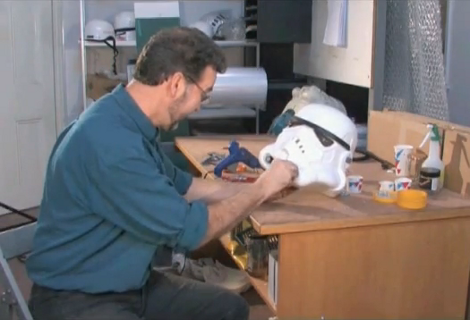Good news this week from the Sun’s far side as the Parker Solar Probe checked in after its speedrun through our star’s corona. Parker became the fastest human-made object ever — aside from the manhole cover, of course — as it fell into the Sun’s gravity well on Christmas Eve to pass within 6.1 million kilometers of the surface, in an attempt to study the extremely dynamic environment of the solar atmosphere. Similar to how manned spacecraft returning to Earth are blacked out from radio communications, the plasma soup Parker flew through meant everything it would do during the pass had to be autonomous, and we wouldn’t know how it went until the probe cleared the high-energy zone. The probe pinged Earth with a quick “I’m OK” message on December 26, and checked in with the Deep Space Network as scheduled on January 1, dumping telemetry data that indicated the spacecraft not only survived its brush with the corona but that every instrument performed as expected during the pass. The scientific data from the instruments won’t be downloaded until the probe is in a little better position, and then Parker will get to do the whole thing again twice more in 2025. Continue reading “Hackaday Links: January 5, 2025”
lawsuit10 Articles
Hackaday Links: June 30, 2024
A couple of weeks back we featured a story (third item) about a chunk of space jetsam that tried to peacefully return to Earth, only to find a Florida family’s roof rudely in the way. The 700-gram cylinder of Inconel was all that was left of a 2,360-kg battery pack that was tossed overboard from the ISS back in 2021, the rest presumably turning into air pollution just as NASA had planned. But the surviving bit was a “Golden BB” that managed to slam through the roof and do a fair amount of damage. At the time it happened, the Otero family was just looking for NASA to cover the cost of repairs, but now they’re looking for a little more consideration. A lawsuit filed by their attorney seeks $80,000 to cover the cost of repairs as well as compensation for the “stress and impact” of the event. This also seems to be about setting a precedent, since the Space Liability Convention, an agreement to which the USA is party, would require the space agency to cover damages if the debris had done damage in another country. The Oteros think the SLC should apply to US properties as well, and while we can see their point, we’d advise them not to hold their breath. We suppose something like this had to happen eventually, and somehow we’re not surprised to see “Florida Man” in the headlines.
Hackaday Links: April 16, 2023
The dystopian future you’ve been expecting is here now, at least if you live in New York City, which unveiled a trio of technology solutions to the city’s crime woes this week. Surprisingly, the least terrifying one is “DigiDog,” which seems to be more or less an off-the-shelf Spot robot from Boston Dynamics. DigiDog’s job is to de-escalate hostage negotiation situations, and unarmed though it may be, we suspect that the mission will fail spectacularly if either the hostage or hostage-taker has seen Black Mirror. Also likely to terrify the public is the totally-not-a-Dalek-looking K5 Autonomous Security Robot, which is apparently already wandering around Times Square using AI and other buzzwords to snitch on people. And finally, there’s StarChase, which is based on an AR-15 lower receiver and shoots GPS trackers that stick to cars so they can be tracked remotely. We’re not sure about that last one either; besides the fact that it looks like a grenade launcher, the GPS tracker isn’t exactly covert. Plus it’s only attached with adhesive, so it seems easy enough to pop it off the target vehicle and throw it in a sewer, or even attach it to another car.
Getty Images Is Suing An AI Image Generator For Using Its Images

Many AI systems require huge training datasets in order to achieve their impressive feats. This applies whether or not you’re talking about an AI that works with images, natural language, or just about anything else. AI developers are starting to come under scrutiny for where they’re sourcing their datasets. Unsurprisingly, stock photo site Getty Images is at the forefront of this, and is now suing the creators of Stable Diffusion over the matter, as reported by The Verge.
Stability AI, the company behind Stable Diffusion, is the target of the lawsuit for one good reason: there’s compelling evidence the company used Getty Images content without permission. The Stable Diffusion AI has been seen to generate output images that actually include blurry approximations of the Getty Images watermark. This is somewhat of a smoking gun to suggest that Stability AI may have scraped Getty Images content for use as training material.
The copyright implications are unclear, but using any imagery from a stock photo database without permission is always asking for trouble. Various arguments will likely play out in court. Stability AI may make claims that their activity falls under fair use guidelines, while Getty Images may claim that the appearance of perverted versions of their watermark may break trademark rules. The lawsuit could have serious implications for AI image generators worldwide, and is sure to be watched closely by the nascent AI industry. As with any legal matter, just don’t expect a quick answer from the courts.
[Thanks to Dan for the tip!]
Oracle V Google Could Chill Software Development
Unless you’ve completely unplugged from the news, you probably are aware that the long-running feud between Oracle and Google had a new court decision this week. An appeal court found that Google’s excuse of fair use wasn’t acceptable and that they did infringe on Oracle’s copyrights to Java. Oracle has asked for about $9 billion in damages, although the actual amount is yet to be decided. In addition, it is pretty likely Google will take it up to the Supreme Court before any actual judgment is levied.
The news is aimed at normal people, so it is pretty glossy about what exactly happened. We set out to try to make sense of it all. We found a pretty good article from [Michaela Barry] about what the courts previously found. There were three main parts:
- There were 37 API (Application Programming Interface) declarations taken verbatim from Java. This would be like a C header file if you aren’t familiar with Java.
- Google decompiled 8 security files and used them.
- The rangeCheck function — 9 lines of Java code — were exactly the same in Oracle’s Java and Android.
Continue reading “Oracle V Google Could Chill Software Development”
Arduino V Arduino: Part II
Since our last article covering the Arduino v. Arduino case, we’ve received a couple of tips, done some more digging, and learned a lot more about what’s going on. We thought it was time to share the story with you as it develops.
The Players
In short, there are two companies calling themselves “Arduino” at the moment. One, Arduino LLC was founded by [Massimo Banzi], [David Cuartielles], [David Mellis], [Tom Igoe] and [Gianluca Martino] in 2009, runs the website arduino.cc, and has been directing and releasing the code that makes it all work. Most of these folks had been working together on what would become the Arduino project since as early as 2005.
The other “Arduino” used to be called Smart Projects and was the manufacturing arm of the project founded and run by [Gianluca Martino]. Smart Projects changed their name to Arduino SRL in November 2014. (A “Società a responsabilità limitata” is one form of Italian limited-liability company.) They have been a major producer of Arduino boards from the very beginning and recently registered the domain arduino.org.
Around the time of the name change [Martino] sold his shares to a Swiss firm Gheo SA and [Federico Musto] was appointed CEO. Gheo SA is owned and directed by [Musto], who also runs a design consultancy based in the US and Taiwan called dog hunter, LLC.
dog hunter and [Musto] helped develop the Arduino Yun, a mashup of an Arduino with an OpenWRT-compatible WiFi router. dog hunter also runs the Linino.org website to support the Linux distribution that’s running on the router part of the Yun.
In short, on one side is Arduino LLC, run by the original Arduino Five and hosting arduino.cc. On the other is now called Arduino SRL, run by a former co-developer [Federico Musto] who bought out the largest producer of Arduino boards and opened up arduino.org.
Making And Selling Star Wars Costumes Ruled To Be Legal

[Andrew Ainsworth] has been making and selling costumes based on Star Wars character (some original, and some of his own creation) for several years. Lucasfilm sued him for $20 million back in 2004 claiming infringement of intellectual property rights. He stopped selling them in the US (as it was a US copyright) but now the UK Supreme Court has ruled in his favor, siding with his claim that the costumes are functional items and not works of art.
Good for him, but copyright issues aren’t what interests us here. The BBC clip showing him using a vacuum former to make the Stormtrooper helmet really caught our attention. A bit of further searching led us to find the thirteen minute video after the break showing the entire process, from sculpting the mold by hand, to forming the components, and the final assembly seen above. It’s a fascinating process that makes use want to build our own vacuum former (preferably on a larger scale than this one). It would come in handy whether it’s Star Wars, Daft Punk, or any number of other projects you’ve got in mind.
Continue reading “Making And Selling Star Wars Costumes Ruled To Be Legal”














